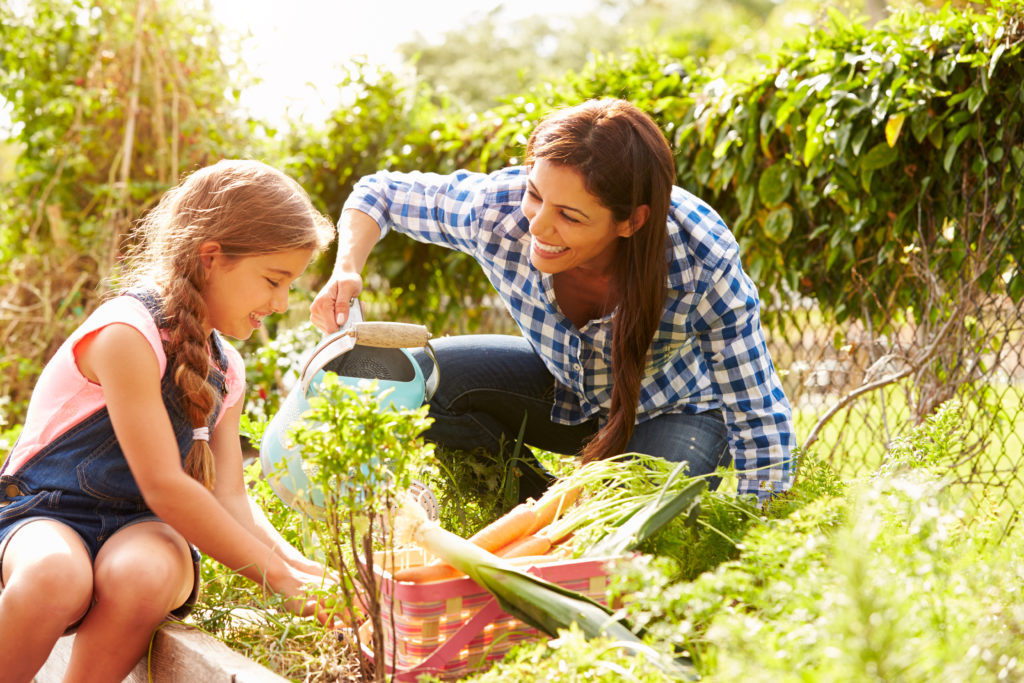
5 Gardening Tips to Get Kids Excited About Veggies!

Gardening teaches children where food comes from, connects them with the natural world, and helps them practice long-term thinking and focus. It’s also surprising how often the pickiest eaters enjoy a new veggie when they grow it themselves.
1. Keep it Simple: Start small and keep it fun
Whatever you grow this summer, start small to ensure success and avoid gardening overwhelm. A square-foot lettuce patch and one tomato plant is plenty for a young gardener. A single four-by-eight raised bed can keep one parent and older child busy all summer.
2. Backyard Science: Keep a garden journal
Help your child start a journal documenting sprouts, plants, flowers, and harvested foods. Young children can draw and color what they see. Older children might write and illustrate their observations. Garden journaling hones attention and connection with the plants.
3. Simple Seeds: The easiest plants to grow from sprout to plate
Several common veggies are easy to grow from seed. Some are happiest planted directly in the garden. Others thrive better when started indoors several weeks before your last frost.
Sprout Indoors First – Cabbage, kale, broccoli, cauliflower, basil
Plant Directly Outdoors – Corn, beans, peas, carrots, beets, lettuce, dill
4. Adopt a Plant: When to buy plants instead of seeds
Some veggies are hard to sprout or quickly overgrow their seed-starting pot. Consider buying these plants from a garden center. Ask nursery employees about the best ones for your garden and how your child should care for their new plant babies. Your young gardener can jot these tips in their garden journal.
Plants to Purchase – Tomatoes, watermelon, cucumbers, squash, most herbs and flowers
5. Remember the Birds and the Bees: Plant a backyard ecosystem
Sunflowers are easy to grow from seeds planted outdoors. Once blooming, they buzz with bees! Later on, sunflower seeds are a food source for local and migratory birds. Planting a variety of flowers in a “pollinator patch” helps the bees, and the bees might pollinate your veggie plants — which increases your harvest. Kids love seeing these connections in action.
6. Build Your Gardening Toolset
Children love to have their own gardening tools, including gloves, a trowel, and harvest basket. Mom or Dad’s tool apron should include two topical products that address the most common summertime ouchies:
- Arnicare – A widely-known homeopathic medicine for relieving bruises and sore muscles*
- Calendula – Soothing relief for cuts, scrapes, sunburn, and bug bites*
Both Arnicare and Calendula are soothing homeopathic products, ideal for children’s delicate skin . Add these to your summertime first aid kit, and your young gardener will be back outside in no time!
*Claims based on traditional homeopathic practice, not accepted medical evidence. Not FDA evaluated.





